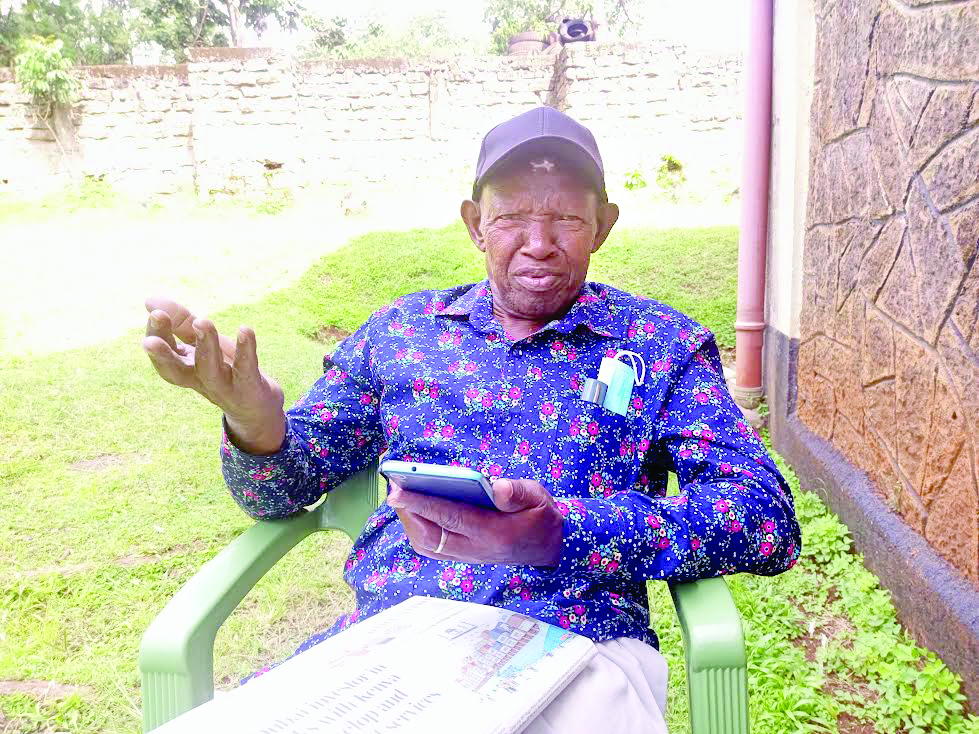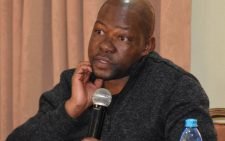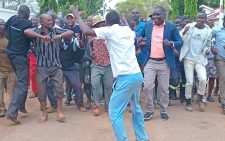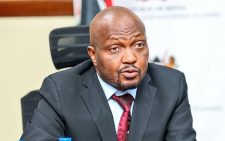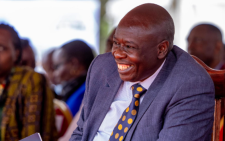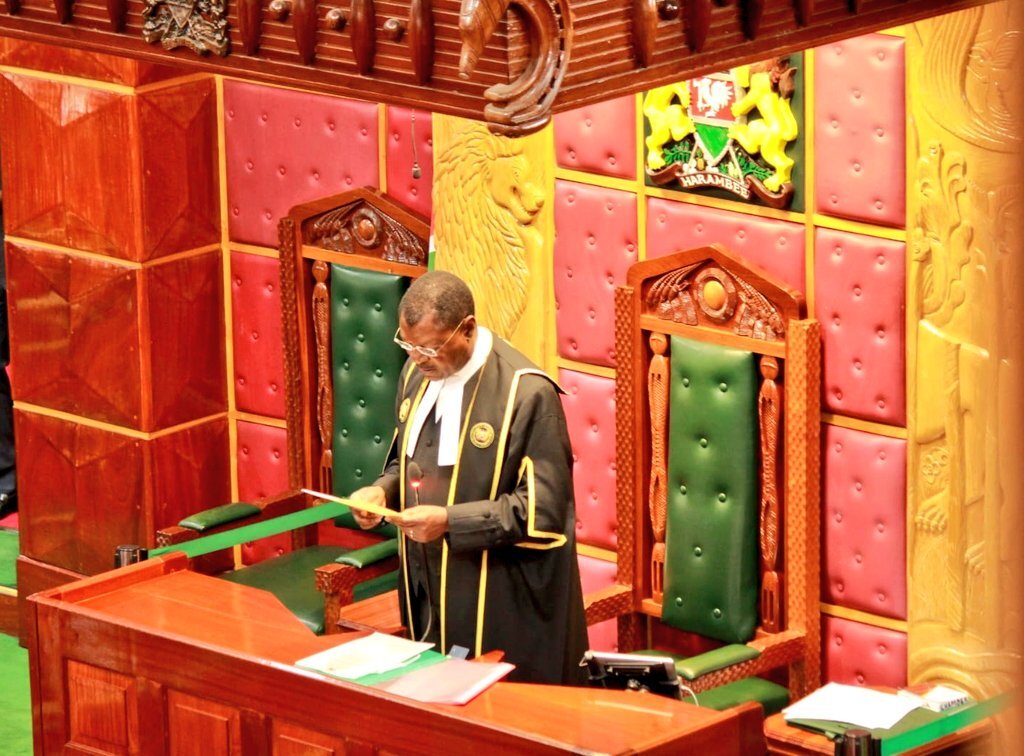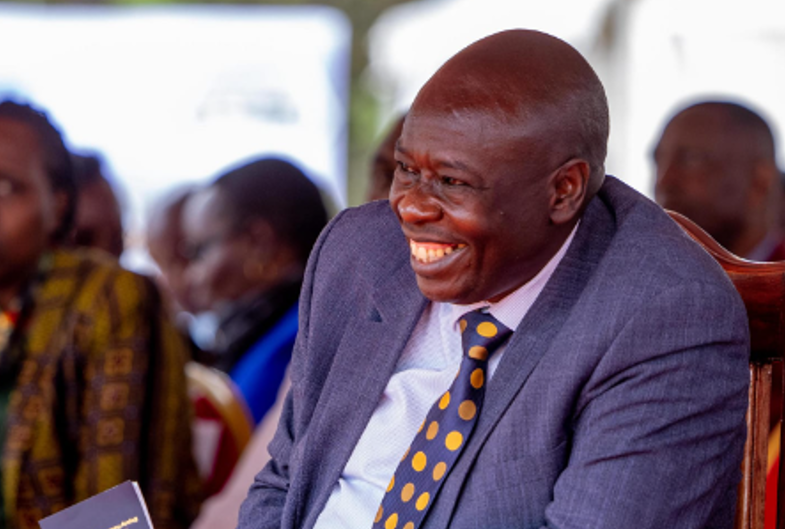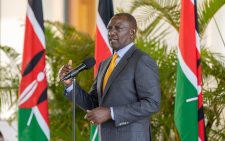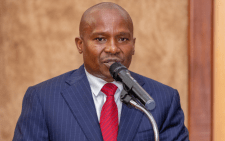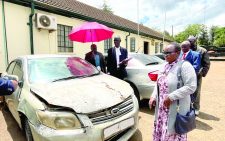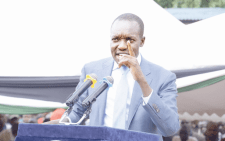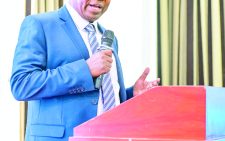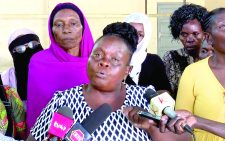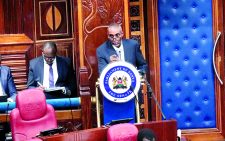“When John Mokua accidentally stumbled upon ‘something hard” close to his breast, he assumed it was one of those harmless skin reactions, such as the common pimples and boils that often go away after a short while.
“It never crossed my mind that I needed to see a doctor or have the lump checked out and I even forgot about it,” he says.
All was well for some time until John started experiencing a strange sensational pain in the same breast area. He could no longer ignore it. On examining the small pimple-like swelling, which he had dismissed a earlier, he was shocked to see that it had grown bigger.
“Even merely touching it was painful,” John shares. He had to do something.
He went to a nearby health facility and was given some medication, but the swelling and pain did not stop.
It was then that he decided to go to Tenwek Mission Hospital in Bomet County where some tests were done and he was asked to go back later for the results.
Woman’s disease
On the appointment day, he woke up very early and boarded a bus and went back to the hospital in high spirits. He had not thought much about what could have been ailing him.
But when the doctor read to him the results and revealed what he really was suffering from, he was dumbfounded. “I was shocked beyond words when the doctor told me I had breast cancer. I am a man. How could I have cancer of the breast? That was new information to me” he recounts, adding, “All along I knew breast cancer was disease that only affected women.”
On his way home, John was dazed and confused, fear of what lay ahead for him and his family taunted him.
“I did not accept my condition until I got counselling,” he admits.
Health professionals say while breast canc er overwhelmingly affects women, men also have breast tissue and are at risk of developing breast cancer too.
They say knowing a man’s family history can be informative and help guide decisions regarding the need for genetic testing, exposure to radiation treatment to the chest, as well as conditions that increase levels of oestrogen, such as obesity are factors that influence the risk of breast cancer in men.
Lower survival rate
John’s reaction after being informed that he had breast cancer is not surprising.
“Males tend to be diagnosed much later with a more clinically advanced presentation, including larger tumor size, grade, and increased lymph involvement. These factors affect the prognosis for males with breast cancer, ultimately creating a lower survival rate when compared to women with the same classification of the disease,” explains Dr Fred Omari, an oncologist at the Kisii Teaching and Referral Hospital.
What’s more, because breast cancer is primarily seen as a ‘woman’s disease,’ men may ignore symptoms. He says most healthcare providers will not imagine that a male could have breast cancer and, therefore, will be treated for other diseases, such as fungal infections, boils and other diseases until it gets out of hand.
Although overall survival for male breast cancer patients has improved over time, he regrets that the prognosis for men with the disease has not advanced as much as it has for women.
Reports show that while that statistics on male breast cancer may not sound as daunting as the equivalent for women, one in eight men will be diagnosed in their lifetime, and the fact that male breast cancer is so rare makes it uniquely challenging.
The American Cancer Society estimates that as at 2020, new cases of breast cancer in men in the US would reach 2,620, with about 520 expected to die from the disease.
In Kenya, male breast cancer data remains skimpy, but data still suggests worldwide, it represents a small percentage of breast cancer cases.
Of concern, however, the disease is more aggressive among men than women despite the low numbers.
Challenges that cut across
Leah Ogega, the Director Representative Health, Kisii Teaching and Referral Hospital, says the biggest challenge facing not only male cancer patients, but all people with cancer is stigma.
“Cancer survivors face stigma from society and even close family members because majority of our people still equate cancer to death. For men, the stigma associated with this breast cancer is that many consider it being a ‘woman’s disease’” Leah says.
The National Cancer Taskforce Report 2022 released recently identified the high cost of cancer diagnosis and treatment, expecially the high out of pocket expenditure.
Experts say men, especially bear this burden because they are mostly the sole providers for their families.
For instance, John says his treatment has taken a toll on his family’s fortunes since he noticed the lump on his breast.
“The cost of my treatment including travelling, medical supplies, the food I have to eat and things I can and cannot do is a huge burden to my family,” he says.
Other challenges mentioned in the taskforce report cut across men and women cancer sufferers, including limited service availability and poorly coordinated cancer management and referral services.
Calen Nyaboke, a 51-year-old mother of eight says when she discovered a lump on her breast in 2015, she went to Nyamira County Hospital for medication, but was sent to Kisii Teaching and Referral Hospital (KTRH) only for her to be referred to Moi Teaching and Referral Hospital where she was diagnosed with breast cancer.
“The time, trouble and cost of seeking treatment in one facility, including hours spent on the queues and then being referred to other specialists or hospitals drains you physically, emotionally and financially at a time you are unwell, stressed and anxious,” says Calen.
Dr Omari says most patients visit the hospital when the disease is at an advanced stage. “Cancer is curable if diagnosed at an early stage since its management depends on the stage of cancer. This is largely because our people are still not well sensitised about the disease,” he says.
Other challenges pointed out by the taskforce were inadequate human resource availability and capacity for cancer prevention and control.
“The highest deficit for healthcare workers is in sub-Saharan Africa and is even more marked for oncology services.The health care system in Kenya faces significant limitations in availability of specialised human resources to effectively manage cancer,” it says.
Lack of multi-sectoral coordination structures and collaboration for effective risk factor reduction and cancer prevention, as well as interventions to minimise or eliminate the risks to cancer causation were also found lacking.
There is also limited funding for cancer prevention and control is mentioned, especially for interventions already identified through various legislations, policies and strategic guidelines.
“The government should consider these other incurable diseases and waive the cost of their management. We, cancer patients, are straining a lot, to look for the food we eat and cater for the medicinal expenses,” John says.
There is also limited cancer research both in capacity and availability to inform policy, according to the taskforce.
Among its six recommendations, the taskforce is calling for the establishment of a Cancer Centre of Excellence to provide comprehensive cancer management services focused on clinical care, research, and training as the hub to set standards for quality cancer management services in the country.

